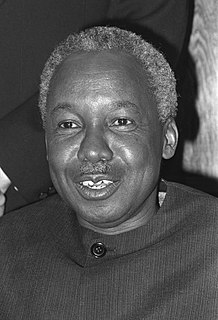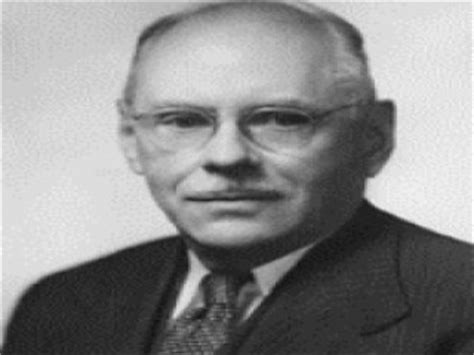A Quote by Margaret Mead
The semimetaphysical problems of the individual and society, of egoism and altruism, of freedom and determinism, either disappear or remain in the form of different phases in the organization of a consciousness that is fundamentally social.
Related Quotes
Having come into contact with a civilization which has over-emphasized the freedom of the individual, we are in fact faced with one of the big problems of Africa in the modern world. Our problem is just this: how to get the benefits of European society - benefits that have been brought about by an organization based upon the individual - and yet retain African's own structure of society in which the individual is a member of a kind of fellowship.
Man is by nature a social animal; an individual who is unsocial naturally and not accidentally is either beneath our notice or more than human. Society is something that precedes the individual. Anyone who either cannot lead the common life or is so self-sufficient as not to need to, and therefore does not partake of society, is either a beast or a god.
The insistence on truthfulness does not disturb the freedom of the individual. The social obligation implied in Satyagraha turns the freedom of the individual into moral freedom. An atheist is free to say or to do what he likes, provided he does what he says and says what he does. So, in the context of social relations, the freedom of the individual is moral freedom.
Old-fashioned determinism was what we may call hard determinism. It did not shrink from such words as fatality, bondage of the will, necessitation, and the like. Nowadays, we have a soft determinism which abhors harsh words, and, repudiating fatality, necessity, and even predetermination, says that its real name is freedom; for freedom is only necessity understood, and bondage to the highest is identical with true freedom.
Freedom is necessary for two reasons. It's necessary for the individual, because the individual, no matter how good the society is, every individual has hopes, fears, ambitions, creative urges, that transcend the purposes of his society. Therefore we have a long history of freedom, where people try to extricate themselves from tyranny for the sake of art, for the sake of science, for the sake of religion, for the sake of the conscience of the individual - this freedom is necessary for the individual.
What, after all, are the world's deepest problems? They are what they always have been, the individual's problemsâ??the meaning of life and death, the mastery of self, the quest for value and worth-whileness and freedom within, the transcending of loneliness, the longing for love and a sense of significance, and for peace. Society's problems are deep, but the individual's problems go deeper; Solzhenitsyn, Dostoyevsky, or Shakespeare will show us that, if we hesitate to take it from the Bible.
The achievements of an organization are the results of the combined effort of each individual.
People who work together will win, whether it be against complex football defenses, or the problems of modern society.
Individual commitment to a group effort - that is what makes a team work, a company work, a society work, a civilization work.
By consequence I hold that no one ever did, or can do, anything for "society."... Comte invented the term altruism as an antonym for egoism, and it found its way at once into everyone's mouth, although it is utterly devoid of meaning, since it points to nothing that ever existed in mankind; This hybrid or rather this degenerate form of hedonism served powerfully to invest collectivism's principles with a specious moral sanction, and collectivists naturally made the most of it.
Marxism was the social creed and the social cry of those classes who knew by their miseries that the creed of the liberal optimists was s snare and a delusion... Liberalism and Marxism share a common illusion of the "children of light." Neither understands property as a form of power which can be used in either its individual or its social form as an instrument of particular interest against the general interest.
The society which we have built can in no way be termed "state socialism."The social organization which we have created can be termed a Soviet, socialist organization which has not yet been quite completed, but is in its root a socialist organization of society. The foundation of this society is public ownership.




































